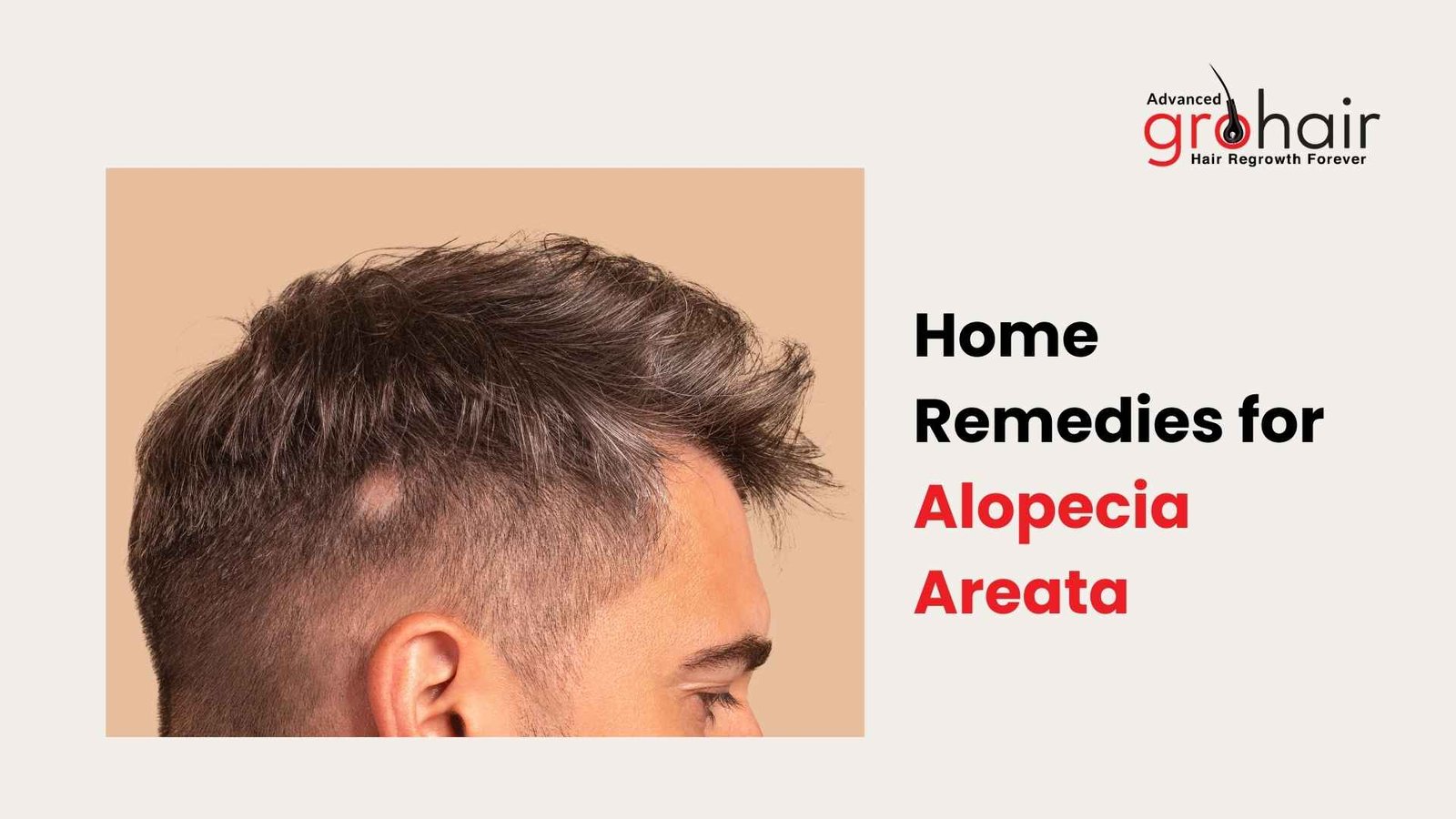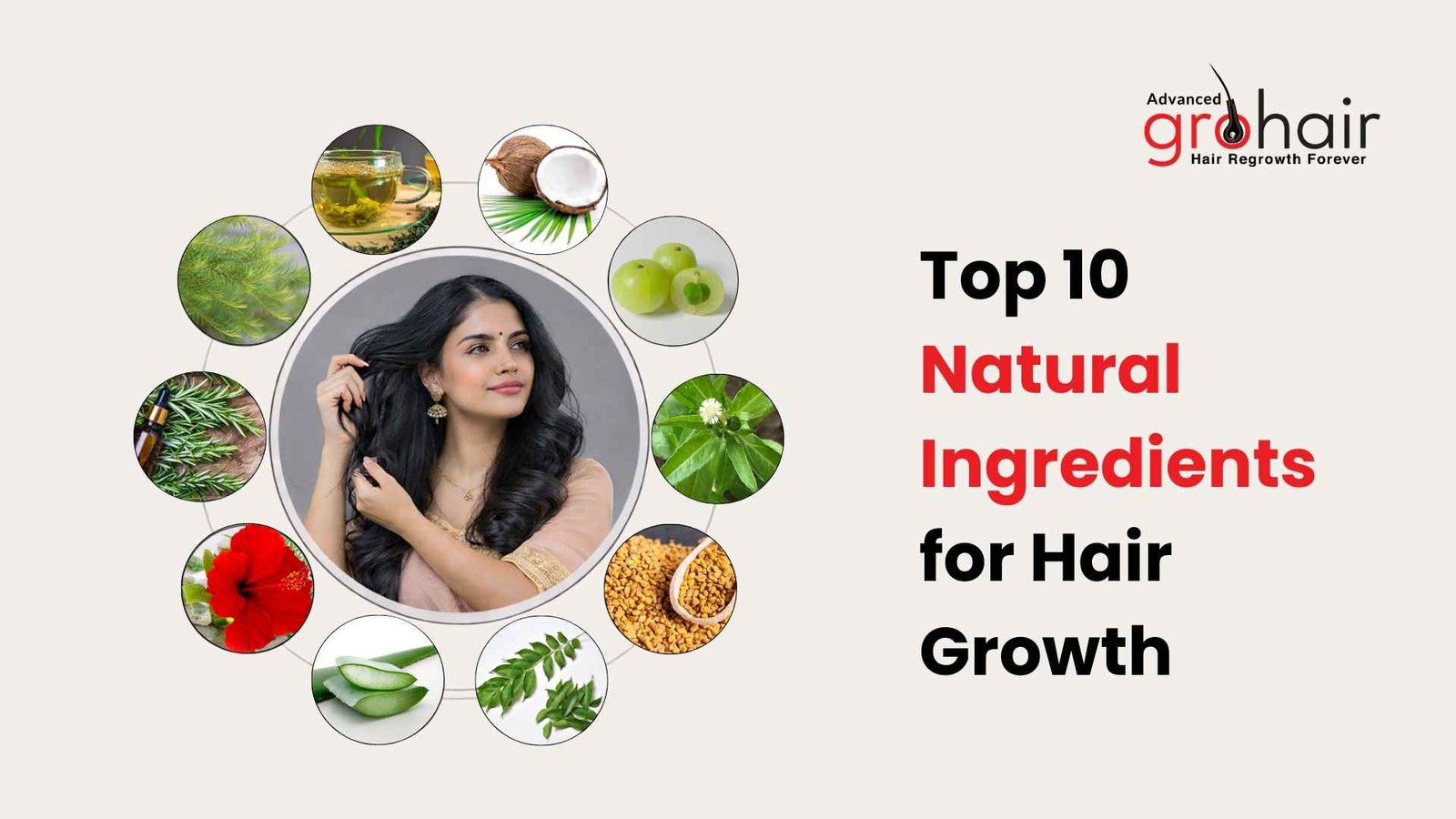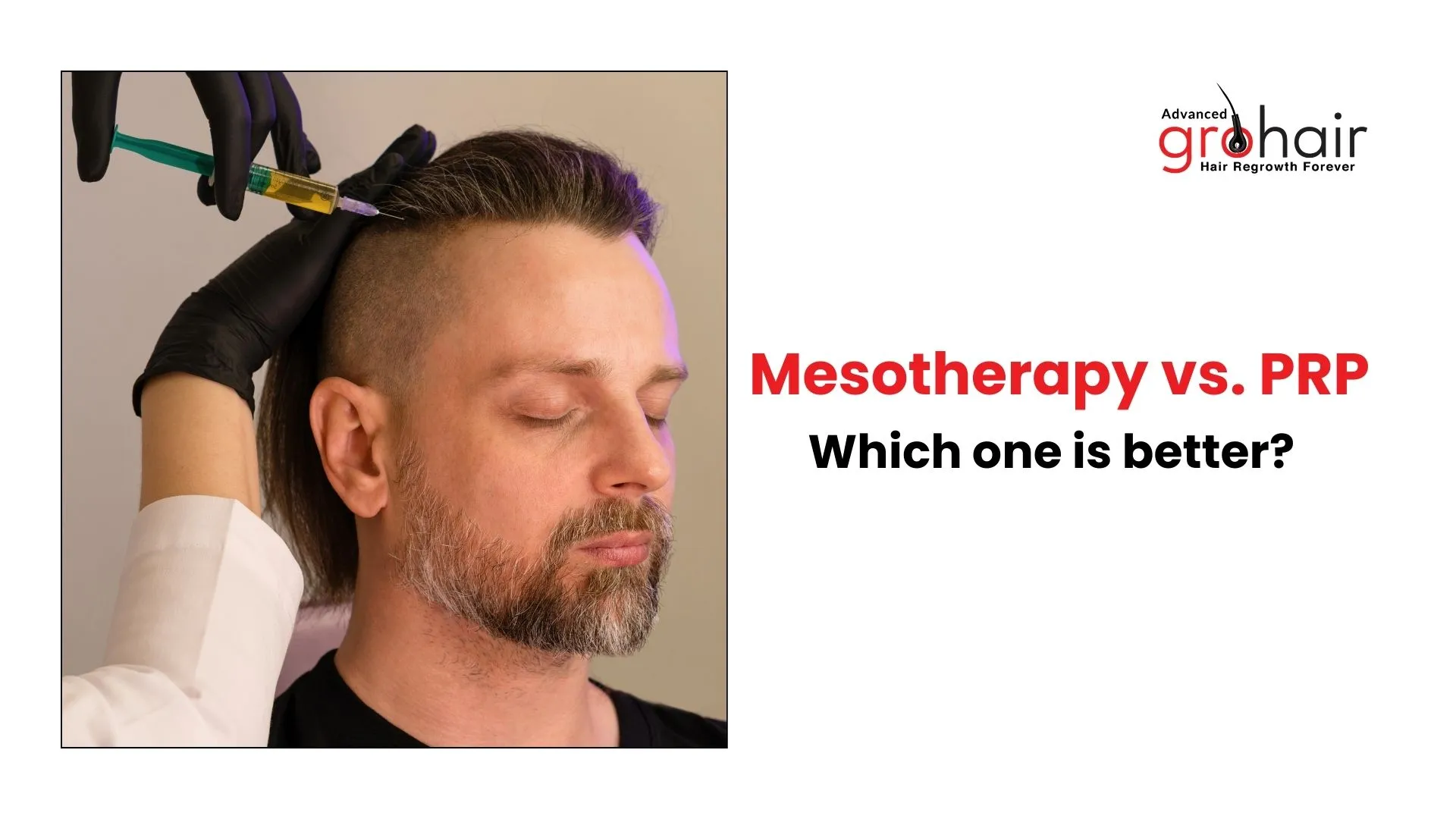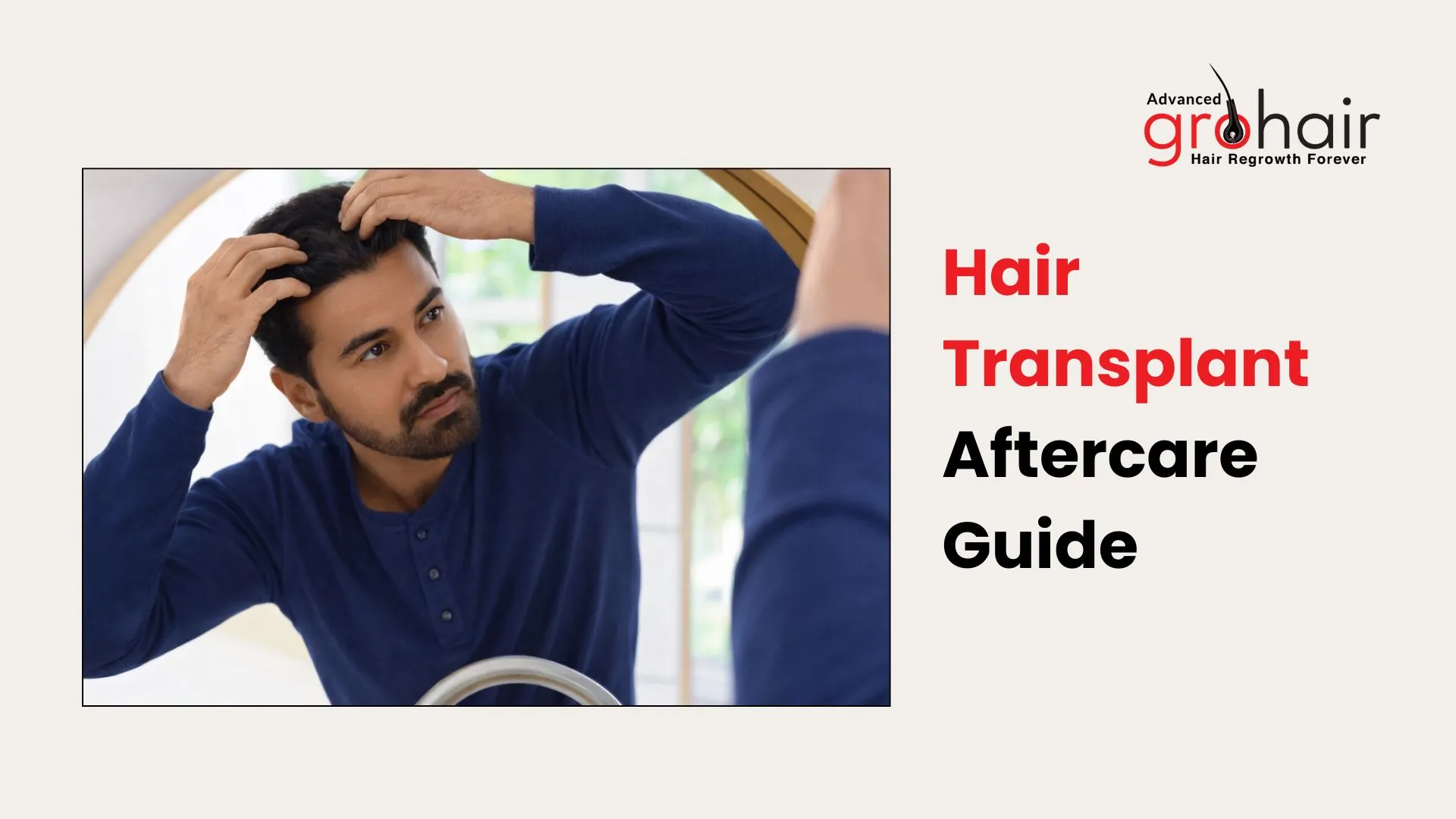Can Dandruff Cause Hair Loss? Know the Real Cause
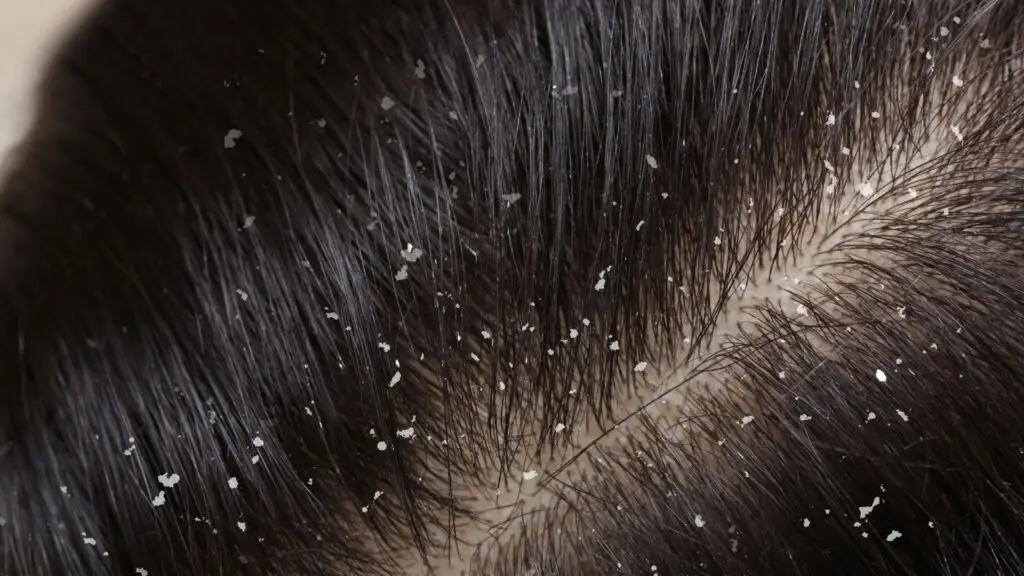
One of the most Googled questions today is: Can dandruff cause hair loss?
And the answer isn’t a simple yes or no.
Flakes on your shoulder. That constant itch. And the low-key embarrassment every time you wear black.
On its own, dandruff doesn’t kill your hair.
But the scratching, the buildup, the inflammation? That’s where the real damage starts.
Over time, these issues weaken your hair roots — leading to more breakage, less growth, and strands that just… give up.
This blog is your deep-dive into what’s actually going on.
We’ll cut through the myths, break down the science (minus the jargon), and show you how to stop dandruff from messing with your hairline.
Because here’s the thing: most people treat dandruff like a skin problem.
But it’s really a scalp health issue — and your hair will pay the price if you ignore it.
And if your scalp is constantly irritated, chances are your follicles aren’t thriving either.
Hair doesn’t just fall because it’s weak — it falls because its home isn’t healthy.
Healthy hair starts at the root — and the root starts with a calm, balanced, and nourished scalp.
Let’s get into it.
How Does Dandruff Affect Scalp Health?
Think of your scalp like soil. If the soil is flaky, oily, or inflamed — would you expect strong roots?
Dandruff throws your scalp off balance. It’s often caused by:
- Excess oil production
- Fungal overgrowth (Malassezia)
- Dry skin or product buildup
Now, here’s what happens when dandruff lingers:
- Dead skin clogs follicles → New hair can’t grow freely
- Itching leads to scratching → Roots get physically damaged
- Inflammation spreads → The entire scalp environment suffers
Each of these factors slowly chips away at your scalp’s ability to support strong, healthy hair.
And here’s where it gets tricky — most shampoos just remove the flakes, but do nothing to treat what’s causing them.
So even if your scalp appears clean, it might still be fighting on the inside.
It’s like dusting away dust on the ground without repairing the leak in the ceiling that’s causing it.
What your scalp really needs is restoration — not just surface-level cleanup.
Flaking is just the surface-level symptom.
What you’re really dealing with is micro-inflammation, imbalanced scalp flora, and suffocated follicles.
A 2023 review published in the Journal of Dermatological Treatment confirmed that chronic dandruff can create a hostile microenvironment for hair growth — especially in genetically prone individuals.
The Link Between Dandruff and Hair Loss
Here’s the truth no one tells you:
Dandruff doesn’t directly cause hair loss — but it sets the trap.
Think about it:
- You scratch your scalp 10 times a day.
- Each scratch tugs at your roots.
- Over time, the follicles get irritated and inflamed.
- You notice more strands in the shower, on the pillow, on your brush.
Still wondering what’s going on?
Here’s what dandruff is really doing behind the scenes:
- Itching = physical trauma to hair roots
- Inflammation = hostile environment for growth
- Clogged pores = blocked regrowth
Result? Thinner, weaker strands — especially around areas you scratch the most.
And if the inflammation is chronic, it starts affecting your hair cycle too — shortening the growth phase (anagen) and speeding up the shedding phase (telogen).
Translation? Your hair starts falling faster than it can grow back.
A 2019 study from the International Journal of Trichology found that seborrheic dermatitis (a severe form of dandruff) significantly correlates with diffuse hair thinning in both men and women — especially in the crown and temple zones.
So no, dandruff won’t make you go bald overnight.
But ignore it long enough, and you’ll slowly start seeing your hairline lose its fight.
Why Does Dandruff Sometimes Lead to Hair Loss?
Let’s break it down — symptom by symptom.
- Scratching: Constant itch weakens the hair shaft and dislodges growing strands.
- Inflammation: Swelling and redness around follicles disrupt the natural hair cycle.
- Build-up: Layers of flakes + oil = blocked hair roots = stunted growth.
- Co-existing scalp issues: Conditions like seborrheic dermatitis or fungal infections accelerate both flaking and hair loss.
Hair fall linked to dandruff isn’t always dramatic.
But it’s the slow, persistent thinning that catches you off guard.
It usually starts with widening hair partings… a patch that feels a little too sparse… or hair that seems dull and refuses to grow past a point.
And while genetics or hormones often take the blame, the real trigger might be sitting quietly on your scalp — masked as dandruff.
Watch out for signs like:
- Greasy scalp with constant flaking
- Redness or burning sensations
A “tight” scalp feeling after washing
These indicate the scalp is inflamed and hair loss could be around the corner.
Treatment of Dandruff to Protect Hair Health
1. Medicated Shampoos
Check for ingredients such as ketoconazole, salicylic acid, zinc pyrithione, or coal tar.
They suppress fungal overgrowth, calm inflammation, and wash away flaking.
Use 2–3x a week, on alternate weeks with a mild cleanser.
Pro tip: Leave the shampoo on for 3–5 minutes before rinsing — that’s when the magic works.
Quick tip: Alternate active ingredients every few months to avoid resistance and keep your scalp sensitive.
2. Topical Treatments & Oils
- Use serums with vitamins B3, B5, and amino acids to repair the scalp barrier.
- Natural oils like tea tree, neem, and coconut offer antifungal + moisturizing support.
- But avoid heavy oils if your scalp tends to get greasy — they can worsen buildup.
Try using scalp applicators or massagers to distribute treatment products evenly and stimulate circulation.
3. Scalp Hygiene & Hair Care
- Wash regularly (2–3x a week).
- Avoid heavy styling products that clog pores.
- Choose scalp-safe conditioners to maintain hydration without buildup.
- Massage your scalp gently while shampooing to stimulate blood flow.
Your scalp is skin — treat it like your face. That means cleansing, treating, and protecting it regularly.
4. Diet & Lifestyle
- Add biotin, zinc, iron, omega-3s to your meals.
- Stay hydrated, manage stress, and prioritise sleep.
- Hormonal and gut imbalances can worsen both dandruff and hair loss.
- Sugar spikes and junk food? They mess with your scalp too.
Anti-inflammatory foods like berries, leafy greens, nuts, and seeds can actively calm scalp irritation from within.
5. Medical Treatments
For chronic cases, dermatologists may suggest:
- Corticosteroid lotions
- Oral antifungals
- PRP therapy to reboot the scalp environment
- LED light therapy to reduce inflammation and promote circulation
Myths About Dandruff and Hair Loss
Myth | Truth |
Dandruff causes permanent hair loss | False. Hair loss from dandruff is usually temporary and reversible. |
More flakes = more hair fall | Not necessarily. The cause of flaking matters more. |
Avoid washing your hair if you have dandruff | Nope. Regular cleansing is key to healing. |
Only dry scalps get dandruff | Oily scalps can get dandruff too — especially due to fungal buildup. |
Note: Dandruff is a symptom, not a sentence.
What you do next — scratch it, ignore it, or treat it — determines whether you keep your hair.
And here’s the real myth-buster:
You don’t have to choose between dandruff-free and hair-friendly — with the right care, you can have both.
When to See a Specialist
Dandruff isn’t always “just dandruff.” Sometimes it’s your scalp’s SOS.
Book a consultation if:
- You notice bald patches or sudden thinning
- Dandruff doesn’t respond to OTC shampoos
- Your scalp is painful, swollen, or sore
- Hair loss continues even after treating the flakes
A specialist can rule out deeper causes — from hormonal issues to chronic infections — and help you build a treatment plan that actually works.
Many clinics now offer scalp imaging analysis and trichology assessments — non-invasive tools that help you see exactly what’s going on beneath the surface.
Final Thoughts
So — can dandruff cause hair loss?
Not directly. But it can definitely make it worse.
Think of dandruff as the first domino. If left unchecked, it leads to itching, inflammation, clogged follicles — and finally, hair shedding.
But here’s the good news:
This cycle can be broken.
With the right care — targeted shampoos, scalp serums, healthy routines, and medical help when needed — you can reclaim control over both your scalp and your strands.
Dandruff need not be a lifelong struggle.
The sooner you act, the more chances your hair has to recover.
A healthy scalp is quiet. It doesn’t itch, flake, or sting.
If yours is sending signals — it’s time to listen.
Because when you take care of your scalp, your hair responds.
Fuller. Stronger. Healthier.
From root to tip.
Frequently Asked Questions (FAQs)
Will hair loss from dandruff grow back?
Yes — in most cases, hair loss from dandruff is temporary. It’s usually caused by scalp inflammation or excessive scratching. Once the dandruff is treated and the scalp is healthy again, hair tends to regrow. However, if there’s an underlying condition like seborrheic dermatitis or psoriasis, it’s best to consult a dermatologist.
Does dandruff mean unhealthy hair?
Not necessarily. Dandruff is more about scalp health than hair health. You can have dandruff and still have strong, shiny hair. But if left untreated, chronic dandruff can affect the scalp environment — which in turn might weaken the roots over time.
Does oiling reduce dandruff?
Not necessarily. Although oiling might briefly alleviate flakiness, it doesn’t solve the underlying problem — usually a fungal imbalance or scalp clog. Actually, too much oil can fuel dandruff-producing yeast. Instead, use targeted anti-dandruff shampoos.
Will I stop getting dandruff if I go bald?
Nope — dandruff occurs on the scalp, not the hair. Even if you shave your head, the underlying scalp issue can remain. Shampooing the scalp with the appropriate shampoos and medications is more beneficial than shaving the hair off.
Is hot water the cause of dandruff?
Hot water itself does not lead to dandruff, but it does dehydrate your scalp and remove natural oils — worsening flakes. Lukewarm water should be used to wash your hair instead.
Book An Appointment
Related Post

